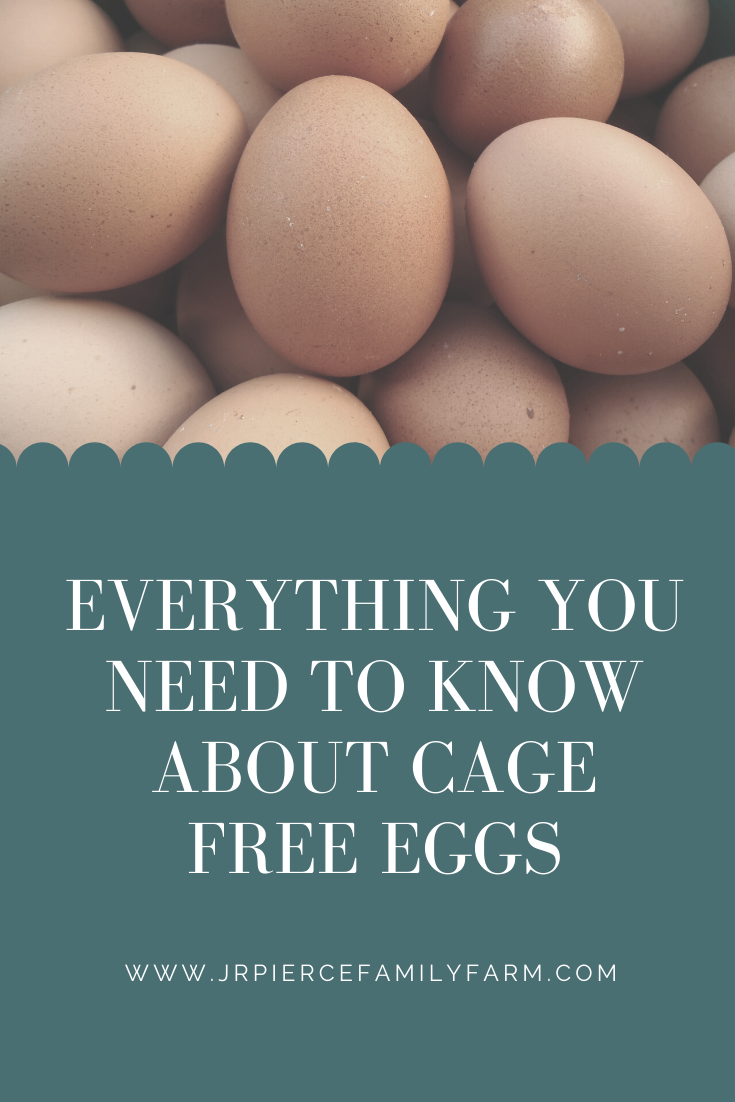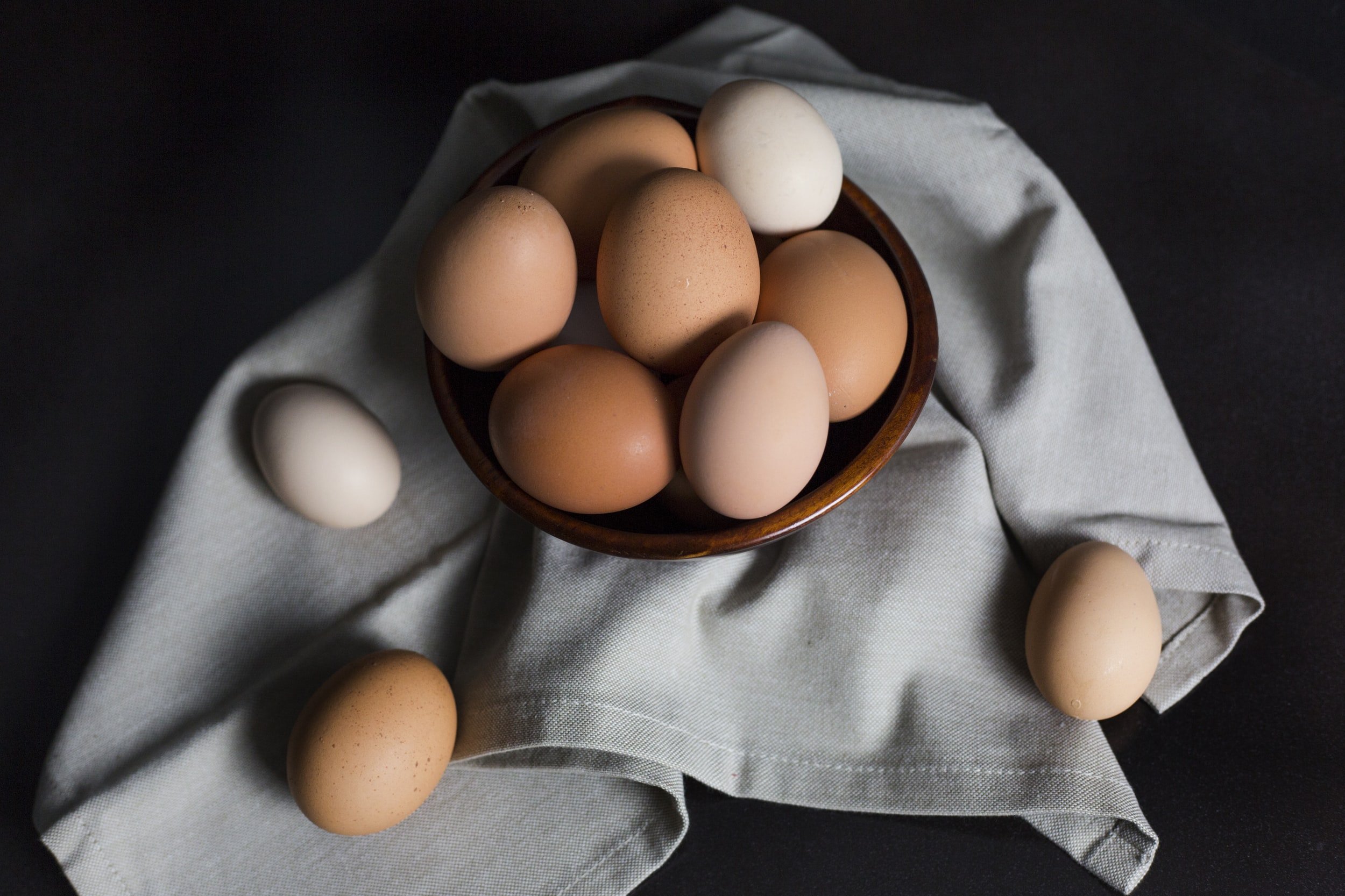Everything You Need to Know About Cage Free Eggs
Marketing is tough work, particularly when you’re trying to sell farm products. It can be a tough sell when it comes to convincing customers that the products from your farm are, in fact, better than those they might buy at the grocery store (albeit more expensive).
When it comes to selling eggs, you’ll find all kinds of marketing ploys and clever wording in place in an effort to cater to a customer base that ultimately wants to make the most ethical purchase.
One of these is the phrase “cage-free.”
I’ve written about all the benefits of pasture-raised eggs in the past, but unfortunately, pasture raised and cage-free are not synonyms. Recently, I discovered this article describing how several states, including Michigan, Washington, California, Rhode Island, and Oregon, now require all egg-producing farms to raise their hens in a cage-free environment.
But is this actually beneficial?
The short answer - yes. But not quite as beneficial as some would like you to believe.
**J&R Pierce Family Farm is a participant in the Amazon Services LLC Associates Program, an affiliate advertising program designed to allow sites to earn advertising fees by linking to products on Amazon. I often link to Amazon when recommending certain products, and if you choose to purchase, I may earn a small percentage of the sale. It costs you nothing extra, and all recommended products are ones that I personally vouch for. **
Are Cage Free Eggs Really Better?
Yes…and no. There’s no nutritional difference between cage free eggs and conventional eggs. A few other things to note are:
Several states have laws in place requiring cage-free systems
The term “cage free” is regulated by the USDA but only means that hens can freely roam a building
There is no legal requirement for how much space the birds have
They don’t necessarily have access to the outdoors
Cage free does not mean the same thing as free range
Here’s a video explaining the idea of cage free eggs a bit more:
New Laws Regarding Cage-Free Eggs
At the end of 2019, the governor of Michigan, Garlin Glichrist, signed into law the requirement that all egg-laying hens in the state be kept in cage-free systems. Michigan is the largest egg-producing state in the country to have this mandate, though it’s not the only one (Rhode Island, Oregon, California, and Washington are other states with this provision).
The shift did not occur overnight, and in fact, it’s something that producers have been preparing for over quite some time.
Interestingly, it’s not a movie that’s occurring in isolation. Several major companies, including Kroger, Meijer, McDonald’s, and Nestle have made commitments with the Humane Society of the United States, vowing to sell only cage-free eggs by 2025.
If that seems like a major win for animal rights advocates, it is - but only to a certain extent. Here’s why.
What Does Cage-Free Actually Mean?
Under these new laws (as well as under all USDA regulations that guide terms like cage-free, organic, etc), for a grower to use the phrase “cage free” it simply means that birds need to be housed in an aviary that provides free movement, perches, dust-bathing areas, scratching areas, nest boxes, and adequate light and ventilation.
So, are cage-free eggs better?
This phrase is regulated by the USDA but the problem with it is that it’s vague. According to the USDA, cage free eggs are simply those laid by hens that can “freely roam a building, room, or enclosed area with unlimited access to food and fresh water during their production cycle, but do not have access to the outdoors.”
When you take into consideration the fact that the average cage is 8 ½ by 11 inches, and the fact that most commercial egg farms have, until recently, only raised their animals in cages, that’s great news. However, there are still downsides to cage-free systems. Cage-free is better than caged, but it’s still not a perfect system.
Are Cage-Free Eggs Better?
Not necessarily.
According to Rachel Khong, author of All About Eggs, cage-free facilities tend to have more violence among the chickens (the hens aren’t confined to their own individual cages) and there’s really no improvement in air quality.
After all, the chickens still can’t access the outdoors. This means that they may be more likely to suffer from respiratory ailments and other diseases related to overcrowding like coccidiosis.
Unlike chickens that are allowed to free-range or are raised exclusively on pasture, cage-free hens are not able to enjoy fresh grass, bugs, and other goodies in an outdoor environment.
Should You Raise Your Chickens Cage-Free?
In my opinion? Yes.
But should you only dedicate yourself to making sure you can apply the cage-free moniker to your hens and eggs? Absolutely not.
There are many other ways of raising chickens that are far superior and will allow your hens to grow up happy, healthy, and productive. Let chickens be chickens!
Let me be clear - I’m not necessarily an advocate of the free-range movement, either. Free-range is another USDA term (meaning it’s regulated - so you can’t just slap a “free range” label on your egg cartons unless your chickens are actually free-ranging) that means your hens have some sort of access to the outdoors.
But don’t let that win you over on its own. Free-range eggs are laid by hens who can access the outdoors, but that doesn’t mean that they actually choose to. It also doesn’t have any sort of bearing on how much outdoor space they need to be provided - it can be as small as a tiny fenced area or a door propped open at the end of the barn.
In my humble opinion, raising chickens on pasture is what you really should be aiming for.
Unfortunately, this term is not regulated by the USDA (although ancillary terms, such as Certified Humane and/or Animal Welfare Approved are). If you find eggs that are listed as pasture-raised and stamped with either Animal Welfare Approved or Certified Humane, it means that each hen was given a minimum of 108 square feet of outdoor space along with plenty of indoor space.
Not sure how you can raise chickens on pasture (particularly without having to worry about predators)? Be sure to check out this article on raising chickens in chicken tractors. By and large, it’s the best and easiest way to give your chickens everything they need without having to worry about suffering major losses as a farmer or homesteader.
Cage-Free Eggs vs. Regular Eggs - The Low-Down
When it comes to cage-free eggs versus regular eggs, the obvious truth is that it’s always better to raise a chicken not in a cage than in one. Duh. You know that.
But when it’s used as a marketing term, it’s often nothing more than a ploy to grab your attention - the same as other terms like:
Hormone-free (hormones and steroids are already banned by the FDA)
No added antibiotics (very few chickens are ever given antibiotics anyway)
Vegetarian-fed (chickens are omnivores - depriving them of bugs, worms, larvae, and other “meats” is deplorable)
Organic (I’ll get some flack for this one - but check out my post on why I don't necessarily believe in the organic label here)
The best route is to give your laying hens as much access to fresh air and sunshine as you can. And if you’re shopping for eggs at the grocery store, choose those that are local whenever possible.
You can always opt for cage-free, free-range, or any other labeling, too, but remember that at the end of the day, sometimes that label is nothing more than a ploy to get your money - and has very little to do with the health of the chickens. Not sure how many eggs you’re actually getting? You may want to start tracking it with this helpful egg collection chart.
What are your thoughts on cage free eggs? Yay or nay - and should other states follow in Michigan’s footsteps in requiring laying hens to be raised in cage-free facilities? Let me know in the comments!
Want to learn more about raising chickens? Be sure to check out these articles!
Subscribe to our email newsletter for regular tips and tricks on homesteading – wherever you are. You can also follow us on Instagram (@jrpiercefamilyfarm) and Pinterest (J&R Pierce Family Farm) for frequent updates. Happy homesteading!







